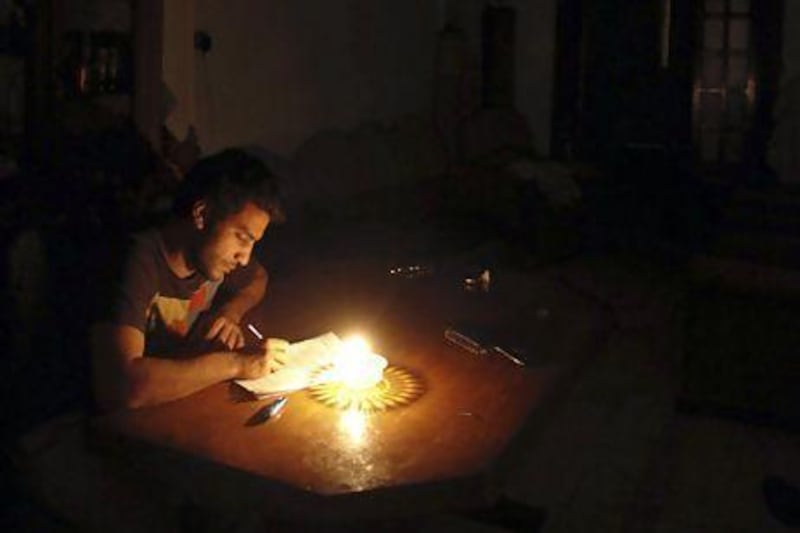Electricity crises are all alike. Within our region, Egypt, Yemen, Iraq, Lebanon and Pakistan are in the grip of full-blown epidemics. Kuwait, Sharjah, Saudi Arabia and parts of India show some of the symptoms. Although the malady varies from place to place, the underlying causes -and the effects - are very similar.
It begins with an understandable, but misguided, wish to keep prices low. This is thought to protect poorer consumers and encourage industry. The government either pays an explicit subsidy to its electricity company or supplies it with below-cost fuel or expects it to swallow losses. Non-payers are not disconnected; illegal connections are tolerated so that alleys in the back streets of Baghdad or Lahore are festooned with cables.
As Hemingway said: "How did you go bankrupt? Gradually, then suddenly." The consequences of this policy are predictable.
The vocal middle classes - who have air conditioning and televisions - gain most of the benefits. Big industries, with political clout, become hooked on cheap electricity.
Consumption soars, while the rural poor, without grid connections, benefit little. If a country or region is lucky enough to enjoy abundant low-priced domestic gas - as Egypt, Pakistan and the Arabian Gulf nations did until recently - it quickly exhausts these supplies and turns to burning much more costly oil.
The state utility's finances become ever more precarious. Inefficient old grids waste increasing amounts of power. The electricity company fails to build generating plants - and for a while, living off spare capacity seems sustainable to the politicians.
With the sharp rise in oil prices in recent years, the utility finds it simply cannot afford fuel, as Sharjah's Sewa and Egypt's state electricity company have found. Pakistan's "circular debt" - a Gordian knot inside a muddle inside a conundrum - involves state oil companies and utilities all owing each other money.
In Iraq and Yemen, security problems make the problem even worse - power lines are attacked; international investors are scared away.
Then the crisis gathers pace. The government imposes rolling blackouts. At times, the grid breaks down entirely as in the great Indian blackout of last July. It may be a crisis of fuel supply, of generating capacity, or both.
Last month, Egyptians launched a campaign not to pay their electricity bills as long as the power cuts persist. However understandable, this tendency is disastrous.
Once a culture of non-payment is entrenched, it is almost impossible to eradicate: as much as half of India's electricity is not paid for. Hardly surprising, then, that India's state utilities, already bailed out in 2003, will have to be rescued again.
Governments make extravagant promises that the crisis will end soon but power plants take years to construct, even under favourable conditions.
When attempts are made to increase electricity prices or bring in private investment the state faces opposition from consumers - who don't appreciate paying more for a still unreliable supply. The lack of reliable power completely undermines a modern economy. The National reported in April how one Sharjah scrap metal company had to relocate to Dubai.
In Egypt, Lebanon and Pakistan, the impact is more widespread and severe. The declining economy gives their governments little financial or political capital to tackle the problem. Developing nuclear or renewable energy or new gas imports demands high technical competence.
There is no easy cure - mustering the political will to take on vested interests, reform prices, replace outdated technologies and attract private investment is a long and painful process. Far better to recognise, and avoid, the pattern of electricity crises.
Robin Mills is the head of consulting at Manaar Energy, and author of The Myth of the Oil Crisis and Capturing Carbon
Officials take note: there's no easy cure to electricity crises
Electricity crises are all alike. Within our region, Egypt, Yemen, Iraq, Lebanon and Pakistan are in the grip of full-blown epidemics. Kuwait, Sharjah, Saudi Arabia and parts of India show some of the symptoms.

More from the national




